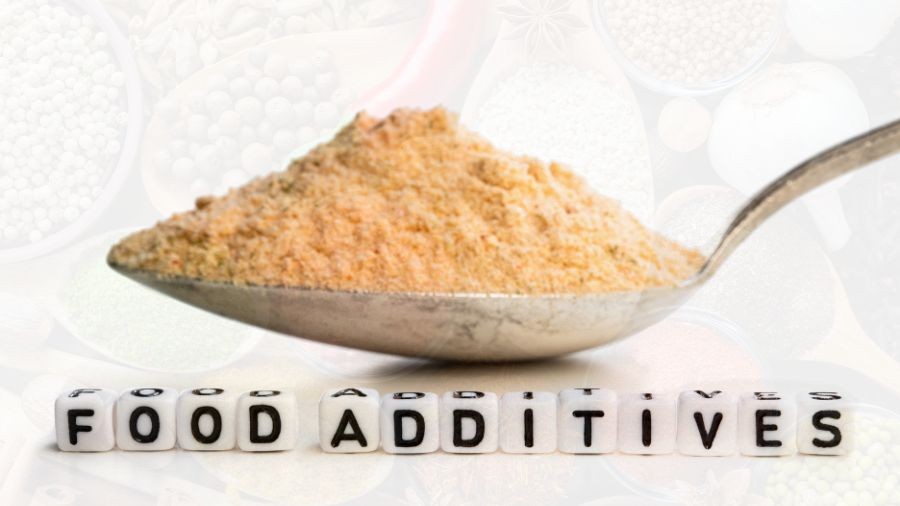Key Trends and Insights in the Food Additives Market

The food additives market is undergoing significant changes as consumer preferences and industry standards evolve. Food additives play a crucial role in enhancing flavor, improving shelf life, and ensuring safety in a range of products. This article explores current trends and key factors shaping the market for food additives, focusing on suppliers and industry developments.
The demand for food additives is growing as the food industry expands. Additives are used to enhance taste, texture, and appearance, and to extend shelf life. With increasing health consciousness among consumers, there is a shift towards natural and organic additives. This trend is influencing the market dynamics.
One notable trend is the rising popularity of organic food additives. These additives are derived from natural sources and are free from synthetic chemicals. This shift is driven by growing
consumer awareness about health and wellness. Organic additives are now used in various products, from baked goods to beverages, offering a more natural alternative to synthetic options.Several key players are shaping the food additives industry. These companies are leading the market with innovative solutions and high-quality products. Major suppliers are expanding their product lines to meet the diverse needs of the food industry. Their focus is on improving product safety, enhancing flavors, and complying with regulations.
Chemical additives remain an important part of the food industry. These additives include preservatives, colorants, and flavor enhancers. They help maintain the quality and safety of processed foods. The demand for these additives continues to grow as they help meet consumer expectations for fresh, flavorful, and visually appealing products.
Flavor is a critical aspect of food products. The best food additives for flavoring include both natural and synthetic options that enhance taste and aroma. Suppliers are constantly developing new flavoring agents to cater to changing consumer preferences. Innovations in this area are driven by the need for more complex and diverse flavor profiles.
The beverage industry also relies heavily on additives. Food additives for beverage production include stabilizers, sweeteners, and flavor enhancers. These additives ensure that beverages remain consistent in taste and appearance throughout their shelf life. Suppliers are working to develop additives that align with health trends, such as reduced sugar and natural sweeteners.
The food additives market is expected to grow steadily in the coming years. However, the industry faces several challenges. Regulatory compliance is a major concern as different regions have varying standards for food additives. Additionally, there is increasing pressure to reduce the use of artificial additives and focus on natural alternatives.
Regulations regarding food additives are becoming more stringent. Governments worldwide are implementing stricter guidelines to ensure the safety and quality of food products. Suppliers must navigate these regulations carefully to remain compliant. This includes staying updated on changes in food safety standards and adjusting their products accordingly.
Sustainability is becoming increasingly important in the food additives industry. Both consumers and companies are focusing on reducing environmental impact. This includes sourcing ingredients sustainably and minimizing waste during production. Suppliers are investing in sustainable practices to meet consumer demand for eco-friendly products.
Innovation is driving the food additives market forward. Advances in technology are enabling the development of new and improved additives. These innovations include better methods for producing natural additives and enhancing their effectiveness. Companies are also exploring new applications for existing additives to expand their use in various food products.
Consumer preferences are playing a significant role in shaping the market for food additives. There is a strong demand for clean-label products, which are free from artificial ingredients and additives. This trend is leading companies to reformulate their products to meet these expectations. Transparency in ingredient sourcing and labeling is becoming increasingly important to consumers.
The competitive landscape of the food additives market is evolving. New players are entering the market, and established companies are expanding their portfolios. Competition is driving innovation and improving product offerings. Suppliers are focusing on differentiating themselves through quality, sustainability, and customer service.
The future of the food additives market appears promising, with continued growth expected. Key trends such as the rise of organic additives, technological advancements, and sustainability initiatives will shape the industry. Suppliers who adapt to these trends and meet consumer demands will be well-positioned for success.
The food additives market is a dynamic and evolving industry. From organic alternatives to technological innovations, the market is responding to changing consumer preferences and regulatory requirements. Understanding these trends and developments is essential for anyone involved in the food industry.
Previous Story
- Demand for food delivery in U.S. has skyrocketed...
- Wholesale Healthy Snacks Meeting the Growing Demand for...
- Revolutionary Advances in Livestock Nutrition with Fodder Additives...
- India's retail inflation rises to four-month high in...
- Revolutionizing Agribusiness with the Impact of Advanced Food...
- Beloved fast food chain enters a bankruptcy death...
- Industrial Food Machinery, Food Processing Components, and the...
- Anheuser-Busch (BUD) Sells 8 Beer & Beverage Brands...